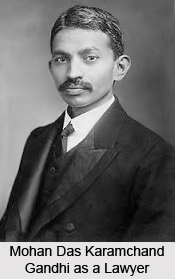
Gandhiji while living in a place called Natal in South Africa, founded an organization known as the Natal Indian Congress. He was a tireless secretary of the congress. The prime aim of the congress was to unify Indians and make them aware of their rights. They struggled against the discrimination Indians faced at the hands of British. The constitution of the organization was officially launched on 22nd August,1894.
In its infant years, the Natal Indian Congress submitted many petitions for changes in the discriminatory laws. Gandhiji imparted a harmonious spirit in the diverse Indian community. He plied all the government offices, legislature and the media with logical statements of the grievances of the Indian community. Gandhiji and his organization stood for the cause of the upliftment of the Indian working class. Thus it became a burning issue in newspapers like ‘The Times of London’ and ‘Englishman’ of Calcutta.












